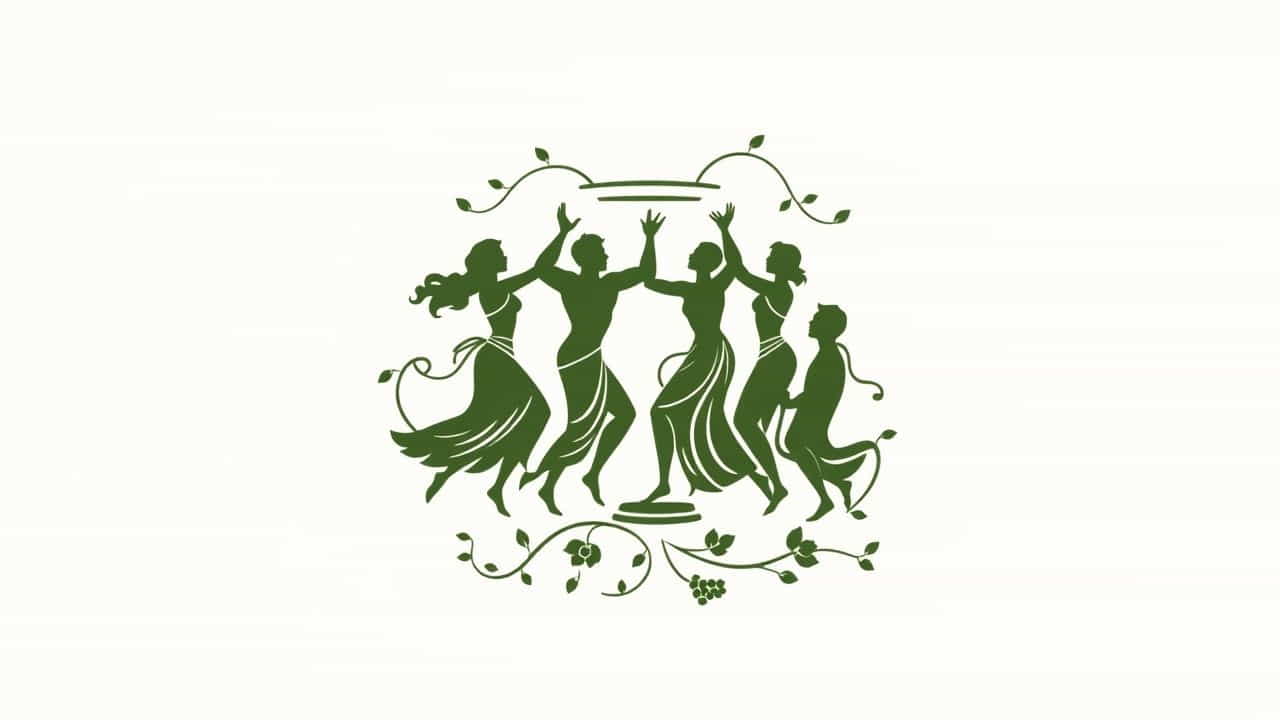A Greek Bacchanal refers to the wild and ecstatic celebrations dedicated to Dionysus, the Greek god of wine, fertility, and revelry. These festivals, known as the Dionysian Mysteries, were filled with drinking, dancing, music, and uninhibited expression. Over time, they became associated with the Roman Bacchanalia, named after Bacchus, the Roman equivalent of Dionysus.
These celebrations were both religious and social events, allowing participants to connect with the divine through ecstatic rituals and theatrical performances. However, they were also controversial, as they often involved secretive rites and uninhibited behavior, making them a target of political and social control.
This topic explores the origins, rituals, significance, and eventual decline of the Greek Bacchanal.
The Origins of the Greek Bacchanal
Dionysus: The God of Ecstasy and Wine
Dionysus was one of the most mysterious and beloved gods in Greek mythology. He was associated with:
-
Wine and intoxication – Symbolizing the loss of inhibitions.
-
Theater and artistic expression – Encouraging creativity.
-
Fertility and nature – Representing renewal and abundance.
-
Religious ecstasy – Enabling spiritual transcendence.
His cult spread throughout Greece, Rome, and beyond, influencing art, religion, and culture.
Early Dionysian Festivals
The Dionysian festivals, or Dionysia, were celebrated in various forms across Greece:
-
Rural Dionysia – Small village celebrations featuring wine, songs, and plays.
-
City Dionysia – Large public festivals in Athens, where tragedies and comedies were performed.
-
Lesser and Greater Dionysia – Seasonal festivals marking the changing of the year.
These events combined religious devotion with theatrical entertainment, laying the foundation for Greek drama and literature.
The Rituals and Practices of a Greek Bacchanal
Ecstatic Dancing and Music
A key feature of a Bacchanal was the intense and frenzied dancing. Participants, often dressed in animal skins or ivy crowns, would enter a state of trance, believed to be a form of divine possession by Dionysus.
The music played a crucial role, with drums, flutes, and cymbals creating a hypnotic rhythm that heightened the celebratory mood.
Drinking and Feasting
Wine was central to the Bacchanal, symbolizing the life force of Dionysus. Large feasts accompanied the celebrations, where people would eat, drink, and abandon social norms.
However, these events were not just about excess they were spiritual experiences meant to bring participants closer to the divine.
The Role of the Maenads
The most devoted followers of Dionysus were the Maenads, women who entered ecstatic states during the Bacchanals. They were believed to gain superhuman strength and visions, sometimes engaging in wild dances or even acts of animal sacrifice.
These women were both revered and feared, as their unrestrained behavior challenged traditional Greek social norms.
Secret Initiations and Mystical Rites
Some Bacchanals involved mystery rituals, where initiates underwent secret ceremonies. These rites were meant to:
-
Purify the soul.
-
Reveal deeper spiritual truths.
-
Offer divine protection and insight.
The secrecy surrounding these rituals added to their mystique and controversy.
The Spread and Influence of Bacchanals
Bacchanals in Rome: The Bacchanalia
As Greek culture spread to Rome, the Bacchanals evolved into the Bacchanalia, held in honor of Bacchus. Initially, they were small private gatherings, but over time, they became more elaborate and wild.
By 186 BCE, the Roman Senate saw the Bacchanalia as a threat to public order, leading to one of the most famous crackdowns in history. Thousands of followers were arrested, and the rituals were banned or strictly regulated.
Influence on Theater and Art
The Bacchanals heavily influenced Greek and Roman theater, particularly:
-
Tragedies and comedies – Many plays featured Dionysian themes.
-
Sculpture and paintings – Depicting Bacchic revelers.
-
Literature and poetry – Exploring themes of excess and ecstasy.
Even today, modern festivals, carnivals, and artistic expressions reflect the spirit of the Bacchanals.
The Controversy and Decline of the Bacchanals
Why Were Bacchanals Banned?
Despite their religious significance, Bacchanals were seen as dangerous by many political leaders due to:
-
Their secretive nature – Making them hard to control.
-
Uninhibited behavior – Challenging social and moral norms.
-
Potential for political gatherings – Authorities feared they could be used for rebellion.
The Roman crackdown on Bacchanals marked the decline of these wild festivals, though traces of Dionysian celebrations continued in different forms.
Surviving Elements in Modern Culture
Although the Bacchanals disappeared, their spirit lives on in various cultural traditions:
-
Mardi Gras and Carnival – Featuring masked revelry and uninhibited celebrations.
-
Theater and film – Many modern productions draw inspiration from Dionysian themes.
-
Wine festivals – Celebrating the same joy of intoxication and social connection.
A Greek Bacchanal was much more than just a wild party it was a spiritual and cultural phenomenon dedicated to Dionysus. These festivals of ecstasy, dance, wine, and mystery shaped ancient Greek and Roman societies and left a lasting legacy on theater, art, and modern celebrations.
Though the Bacchanals faded due to political and social pressures, their influence remains evident in the way people celebrate freedom, creativity, and human expression today.
